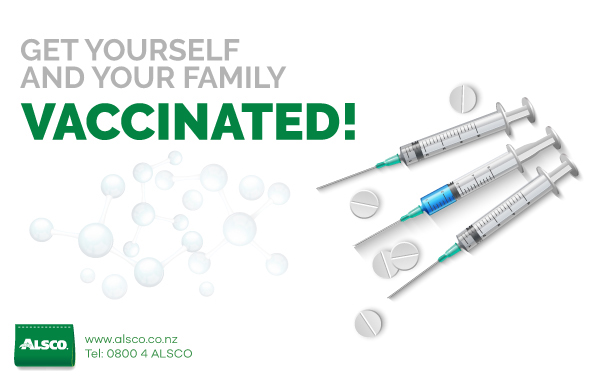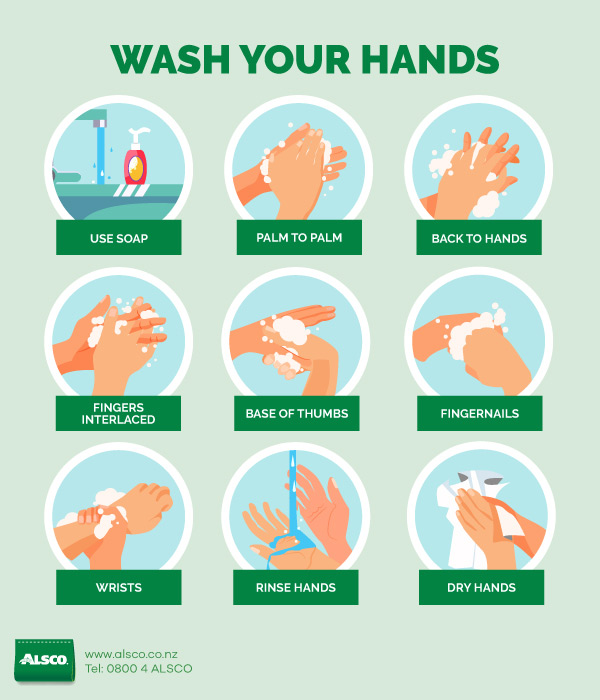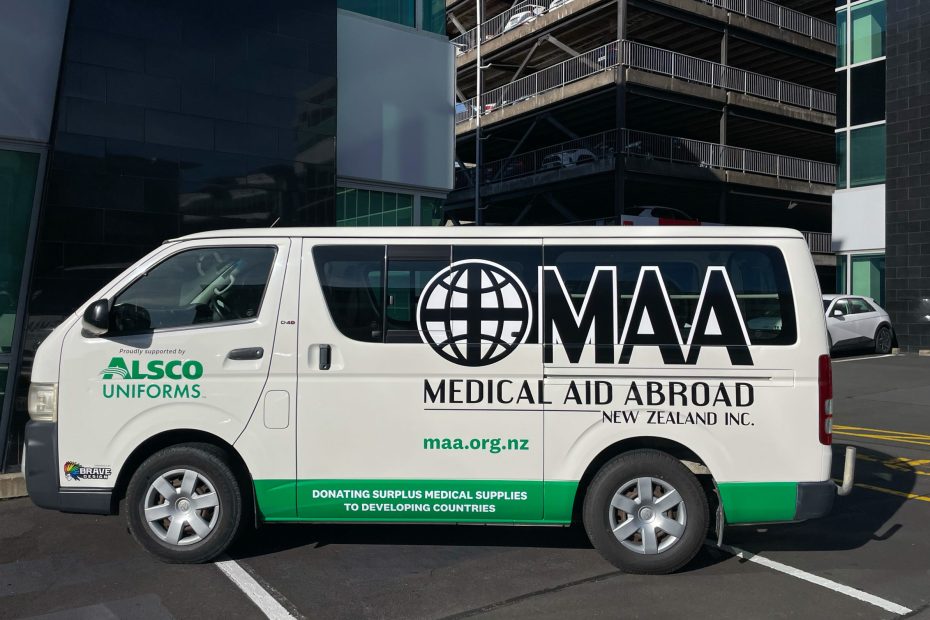Protecting yourself from the flu begins with a basic understanding of the flu and its symptoms.
The flu is a common respiratory infection.
It affects millions of people around the world every year.
The flu begins with a viral infection with mild to severe symptoms.
Common flu symptoms include:
- A fever
- Body aches
- Runny nose
- Sore throat
- Coughing
- Fatigue
In many cases, these symptoms will improve within a week. Most people will recover completely without any serious complications.
But, older adults with weaker immune systems might develop serious complications like pneumonia. Up to 85 per cent of flu-related deaths affect people older than 65. Medical intervention for older adults with the flu can save a life. They need immediate medical attention once they start presenting flu-like symptoms.

Practical Measures to Protect Yourself From the Flu
During the flu season or a respiratory infection outbreak, you need to protect yourself.
There are different protective measures you can take before and after exposure to the flu virus:
1. Stay Away From Crowded Spaces
If you can, stay away from crowded spaces. Limit your contact with people as much as possible.
This will reduce your chances of getting in contact with an infected person.
Some of the spaces to avoid include:
- Local government facilities and offices
- Hospitals and other medical centres
- Schools and other learning centres
- Public transport facilities and hubs
- Health and fitness facilities such as the gym
- Religious centres and gatherings
- Stadiums and large spotting venues
How to Protect Yourself While in Public
Since you cannot avoid these places entirely, make sure you protect yourself in public.
You should:
- Avoid touching surfaces and objects other people touch regularly, such as the rail on a staircase.
- Do not shake hands, hug or kiss people you meet. If you must exchange pleasantries, limit it to a handshake and wash your hands as soon as possible.
- Whenever possible, keep a safe distance between you and other people. For example, you can choose to sit at the back of the bus to avoid people.
- Wear a face mask if you are sick, have a weak immune system or are currently treating another respiratory infection.
- Pay attention to your surroundings. If you see anyone coughing or sneezing, keep your distance.
2. Practice Safe and Regular Handwashing

The flu virus, like most other respiratory viruses, can live on hard surfaces for up to 24 hours. The virus can enter your body through your eyes, nose or mouth if you touch your face with contaminated hands.
Since you are likely to touch your face several times in a day, get into the habit of washing your hands regularly.
This is especially important if:
- You are eating or preparing food.
- Taking care of children.
- Working with the sick or the elderly.
- Are in constant contact with strangers, such as working as a receptionist.
If you cannot access a sink with water and soap, make sure you always have a bottle of hand sanitising gel with you.
You can use the hand sanitiser after shaking hands or when handling commonly touched surfaces, such as doorknobs.
While hand sanitiser can play a role in reducing the rate of infection, it is not as effective as handwashing.
Proper handwashing techniques include:
- Using soap and water.
- Washing your hands under running water.
- Spending at least 20 seconds washing your hands. You can time yourself by singing the happy birthday song twice.
- Drying your hands with a clean towel or dry, disposable tissues.
If you have the flu, you can protect others by coughing into a tissue or your elbow. This reduces the risk of you infecting others around you when you shake hands.
3. Boost Your Natural Immune System
A strong immune system is more resistant to the flu virus. It will help your body fight off the infection and any related complications.
If you get infected, a strong immune system will reduce the severity of your symptoms. It might even help you recover faster.
There are some habits you can develop to strengthen your immune system, for example:
- Make sure you get enough rest by sleeping for seven to nine hours every night. Sleeping allows your body to produce cytokines, a protein targeting inflammation and infections. Cytokines strengthen your immune system. They give your body the ability to fight viral infections.
- Create a physical exercise routine. You can start with 30-minute sessions at least three times a week. Physical activity increases blood flow within the body. This allows white blood cells (in charge of fighting infections) to travel through your body faster.
- Add more fruits and vegetables to your diet. They contain vitamins and antioxidants, which promote good health and support the body’s immune system.
If you have a low immune system, talk to a medical professional. Your doctor will recommend multivitamins to support your natural immune system.
4. Ask Your Doctor for a Flu Vaccine

Make sure you get your annual flu vaccine. The dominant flu virus changes every year, thus, you need to update your vaccine annually.
Getting your annual shot reduces the risk of getting the flu by 40 to 60 per cent.
Schedule your vaccine in mid or late autumn. This gives it enough time to kick in and protect your body. It can take up to two weeks to become effective.
If you are over 65, talk to your doctor and ask for a higher dose of the flu vaccine. The doctor will assess you and give you the right dose for your immune system.
In addition to the flu vaccine, ask your doctor for pneumococcal vaccines. They protect the body against pneumonia and meningitis.
Advantages of Getting the Flu Vaccine:
- It reduces the chances of getting the flu or flu-related illnesses. In some cases, it can also protect you from viruses similar to the flu-causing viruses.
- It lowers the chances of children and the elderly getting hospitalised for the flu.
- The flu vaccine serves as an important life-saving measure. It can make a big difference for people with pre-existing health conditions.
- It keeps pregnant women out of the hospital during and after the pregnancy.
- If you still get sick, it significantly reduces the severity of your symptoms.
Getting the vaccine protects you and the people around you. You should prioritise it if you come into contact with children, the elderly or sick people.
5. Make Use of Disinfectants

Clean and disinfect all shared spaces to reduce the risk of infection.
If you or someone around you has the flu, keep them secluded from everyone else.
You can use disinfectant wipes to:
- Wipe the keyboard on your computer and desk at work. This is especially important if you work in shifts and share your work station with others.
- Use a disinfectant on commonly touched surfaces such as doorknobs and remotes.
- Clean the spaces designated for the sick. Make sure any caregivers getting into these spaces wear masks and gloves. This will stop the flu from spreading.
6. Consult Your Doctor if You Have Flu-Like Symptoms
In most cases, the body can fight the flu. There is no cure for the flu-causing virus. Doctors will only give you medication to manage the symptoms and boost your immune system.
Even so, it can lead to serious complications in children and people over the age of 65.
Visiting the doctor early can help you manage your symptoms. This helps doctors test for related infections and treat them early.
Going to a doctor within 48 hours of the infection can help you get an antiviral. The antiviral will help shorten the duration and severity of the flu. This reduces the risk of complications and hospitalisation, which can lead to death.
The Most Important Preventative Measure
In most cases, you can manage the flu with a strong immune system.
Still, the flu poses a serious health risk to the elderly and sick around you.
You have a responsibility to protect yourself and those around you.
Always take advantage of handwashing stations around. Cleaning your hands regularly is the best way to avoid spreading the virus.
Alsco NZ offers a wide variety of handwashing and hand sanitising solutions you can use in your workplace.
If you are committed to preventing the spread of the flu, you can contact Alsco NZ for these and other sanitation solutions.
Photo: Freepik






